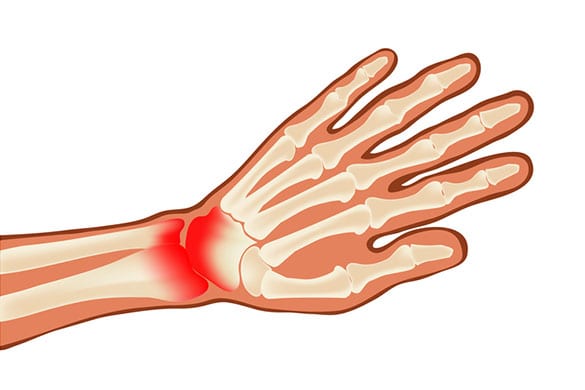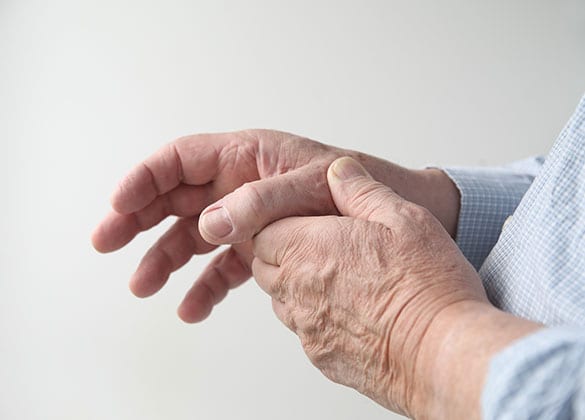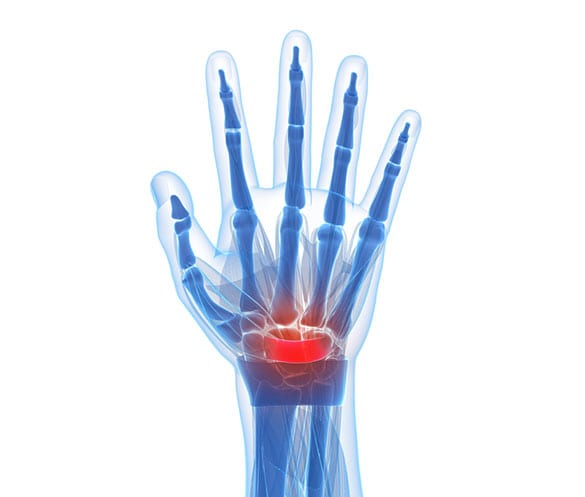
Find relief from hand injuries with a hand specialist in Los Angeles.
Hands can become a source of pain from accidents, overuse injuries, age-related changes, or progressive conditions that affect joints and contribute to inflammation. Minor burns, stings, and cuts are among the types of injuries that usually aren’t considered serious.
- But if hand-related pain is accompanied by visible swelling or disfigurement, numbness and tingling sensations, or limited flexibility, it’s likely time to consider a visit to a hand specialist in Los Angeles.
- This is also the type of specialist you may be referred to if you experience any of the following problems involving your hands, wrists, or fingers.
CONTACT US TODAY
Carpal Tunnel Syndrome
A painful condition resulting from compression of the median nerve, carpal tunnel syndrome may also be worsened by medical conditions such as high blood pressure and diabetes that affect circulation or trauma to the wrist. Symptoms that may include radiating pain, numbness, and general weakness are often treated with anti-inflammatory medications, corticosteroid injections, splinting, or surgery to relieve pressure on the median nerve. A related, but less severe, condition is writer’s cramp, which can develop due to repetitious hand or finger motions.
Nerve Injuries
Median, ulnar, and radial nerves are the main nerves of the hand. If any of these nerves has been cut, damaged by a severe burn, overstretched, or irritated, sensation may be affected. Depending on the severity of the nerve injury, treatment may involve immobilization, therapeutic exercises, or surgery to repair the damaged nerves.


Finger or Wrist Dislocation
Sometimes referred to as a “finger jam,” a finger dislocation is often associated with sports-related injuries or some other sudden trauma. Both finger and wrist dislocations are serious and require immediate attention. Patients with a dislocation may be referred to a hand specialist in Los Angeles if the dislocation isn’t healing or if nearby tissues were also damaged.
Hand Tendonitis
Thick, rope-like tendons in hands and wrists connect muscles to bones to facilitate movement. If these tissues become inflamed or irritated due to repetitious motions or sudden trauma, hand tendonitis may cause pain and swelling and contribute to joint damage. Direct pressure on a hand with tendonitis while holding a pen or trying to button a shirt often makes pain worse. The condition sometimes leads to trigger finger if the affected tendon gets caught or stuck in the tunnel where it’s located as a finger bends. After a positive diagnosis of hand tendonitis is made, treatment may include pain and anti-inflammatory medications, platelet-rich plasma or corticosteroid injections, or procedures involving dry needling, ultrasound, or surgery.
Hand and Wrist Fractures
Swelling, bruising, and loss of function are among the symptoms that may be associated with hand or wrist fractures. If a fracture is severe, it may result in a visible deformity, or it may be accompanied by an open wound. If the bone that connects the arm to the wrist and hand joint breaks, it’s a distal radius fracture. Often resulting from a sports-related injury or a hard fall, finger fractures are more common than wrist fractures. If there’s not an open wound, treatment usually includes splinting. Pins, screws, or wires may need to be surgically inserted for severe fractures to join the broken bones back together to allow for proper healing.
Hand and Wrist Fractures
Characterized by joint stiffness, arthritis affecting hands and wrists can produce symptoms that range from occasional discomfort to disfiguring joint stiffness that severely limits joint movement. Rheumatoid arthritis (RA) often starts in joints of the hands and feet. Basal joint (thumb) arthritis is a form of osteoarthritis that can lead to the gradual wear of cartilage. In addition to NSAIDs, a hand specialist in Los Angeles might recommend injections or exercises that include finger or thumb bends and wrist stretches.
Other Underlying Health Issues
A patient may be referred to a hand specialist in Los Angeles if they’re having hand pain from underlying health issues other than arthritis. Diabetes, for instance, may affect sensation in hands and wrists or contribute to nerve damage. While damage to nerves can’t be reversed, a hand specialist may be able to recommend treatments to help manage symptoms and ease discomfort. Hands, fingers, and wrists may also be affected by autoimmune diseases like lupus. Raynaud’s phenomenon is a condition where tissues in hands may have an extreme response to emotional stress or cold temperatures that sometimes requires attention from a specialist. A hand specialist also treats infections affecting hands, wrists, or fingers.
When something prevents you from performing any of the many daily tasks that involve your hands, wrists, or forearms, a hand specialist in Los Angeles can diagnose and treat the problem. Surgery that might involve wrist arthroscopy, a tendon transfer, or replantation. But our hand specialists make an effort to use non-invasive methods and conservative treatments whenever possible to resolve or manage pain and restore function.




